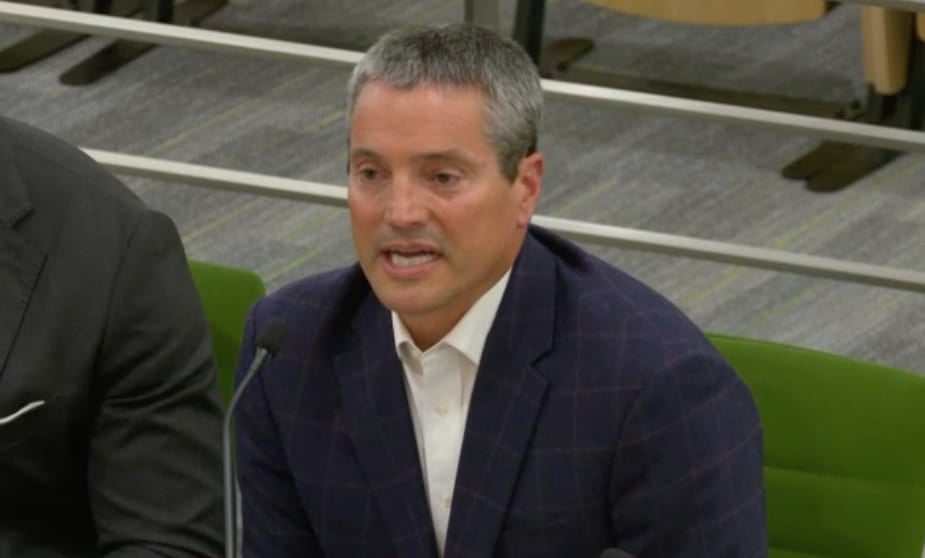SACRAMENTO, Calif. (CN) — A debate in California’s Assembly about whether to fast-track bills looking to trim down the state’s notoriously laborious environmental review process caused some pushback on behalf of public transparency.
State lawmakers convened the last in a series of informational committees serving as the first public hearings on Governor Gavin Newsom’s proposed policy and budget package for the coming year.
Newsom released his proposals to improve the speed of infrastructure projects on May 19, saying that his eight-bill package will streamline project approval, maximize California’s federal infrastructure dollars and expedite projects to meet economic and climate goals.
He said that alongside his new executive order, the state will speed up construction, clear delayed construction procurement processes and expedite judicial review for projects that have already passed environmental reviews. He also stressed the goal to restore public trust in their government institutions amid the growing dangers from climate change.
The governor's legislation builds on efforts to reform the California Environmental Quality Act and other prior actions lawmakers have taken to streamline state laws and maximize housing production. About 20 CEQA reform bills recently became law in the state.
In the joint hearing Wednesday, lawmakers reviewed two controversial proposals from the package — streamlining judicial review under CEQA by adjusting the timeline, records used and the total review process of priority infrastructure projects.
State Assemblymember Brian Maienschein, a Democrat from San Diego, said there will be more opportunities for the public to review the key proposals, but currently those are not yet bills that can be amended or voted on.
State agency leaders said the proposals are driven by urgency around the need for housing and addressing the impacts of climate change, against the state’s well-established environmental regulation and review process.
“From our perspective this isn’t the case of reforming our systems over years and months, the urgency of our system is within weeks,” the California Resources Agency's secretary Wade Crowfoot said.
Crowfoot said that federal officials want money to go to projects that can happen quickly, and that the state has a reputation for slow-moving projects.
“We are not positioned to meet these (climate) targets,” he said. “It’s simply too lengthy and too difficult to get the infrastructure we need to build (this year).”
The first proposal, among other requirements, would attempt to shorten the state’s judicial review process by requiring any litigation against proposed development projects to be resolved within 270 days. The second proposes cutting down on the number of records that can be used in a review process, and who can prepare and use those records.
None of this would change any of CEQA’s current requirements for projects, Crowfoot said. However, lawmakers were swift to lay out their concerns about moving these proposals through more quickly through the “trailer bill” process — which allows bypassing the usual legislative process during the budget period. A trailer bill makes statutory changes needed to implement the budget, but takes effect immediately with a majority vote.
“With something of this magnitude, we really shouldn't be using the trailer bill process,” state Assemblymember Dawn Addis, a Democrat from San Luis Obispo, said. She said the proposals will push through too much that will directly impact coastal communities negatively.
Crowfoot responded that different stakeholders have said they do want adjudication processes under CEQA to happen more quickly and smoothly.
“The status quo is broken,” he said. “These proposals come from well-meaning colleagues and our agencies, that want to deliver on the targets that our policymakers have set.”
Some representatives of pro-labor lobbies and construction union workers loudly supported the proposals, based on improving construction times during a housing crisis.
But others said they doubted that stakeholders representing marginalized communities, like Restore the Delta, were invited to give feedback in the public outreach process conducted before the hearing. Environment California and Golden State Salmon Association both opposed, saying these proposals are not the right approach to advance clean energy projects that manage water responsibly.
Attorney Paul Mason said he did not see the point of excluding certain types of records, including documents of internal conversations around certain projects, from the judicial process for handling CEQA cases, just to speed it up.
“That seems exclusively to hide the warts,” he said.
Matt Baker, policy director at Planning and Conservation League, objected to using the state budget process to advance policy of this importance.
“It’s going to take time and a lot more stakeholder collaboration to get these policies right,” Baker said. “It at least demands the full legislative process.”
Subscribe to Closing Arguments
Sign up for new weekly newsletter Closing Arguments to get the latest about ongoing trials, major litigation and hot cases and rulings in courthouses around the U.S. and the world.









